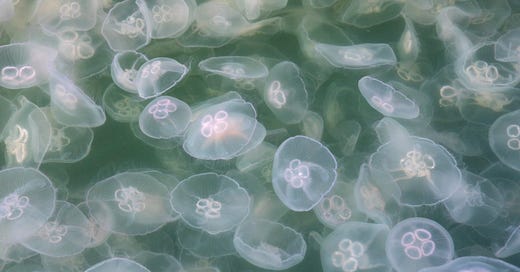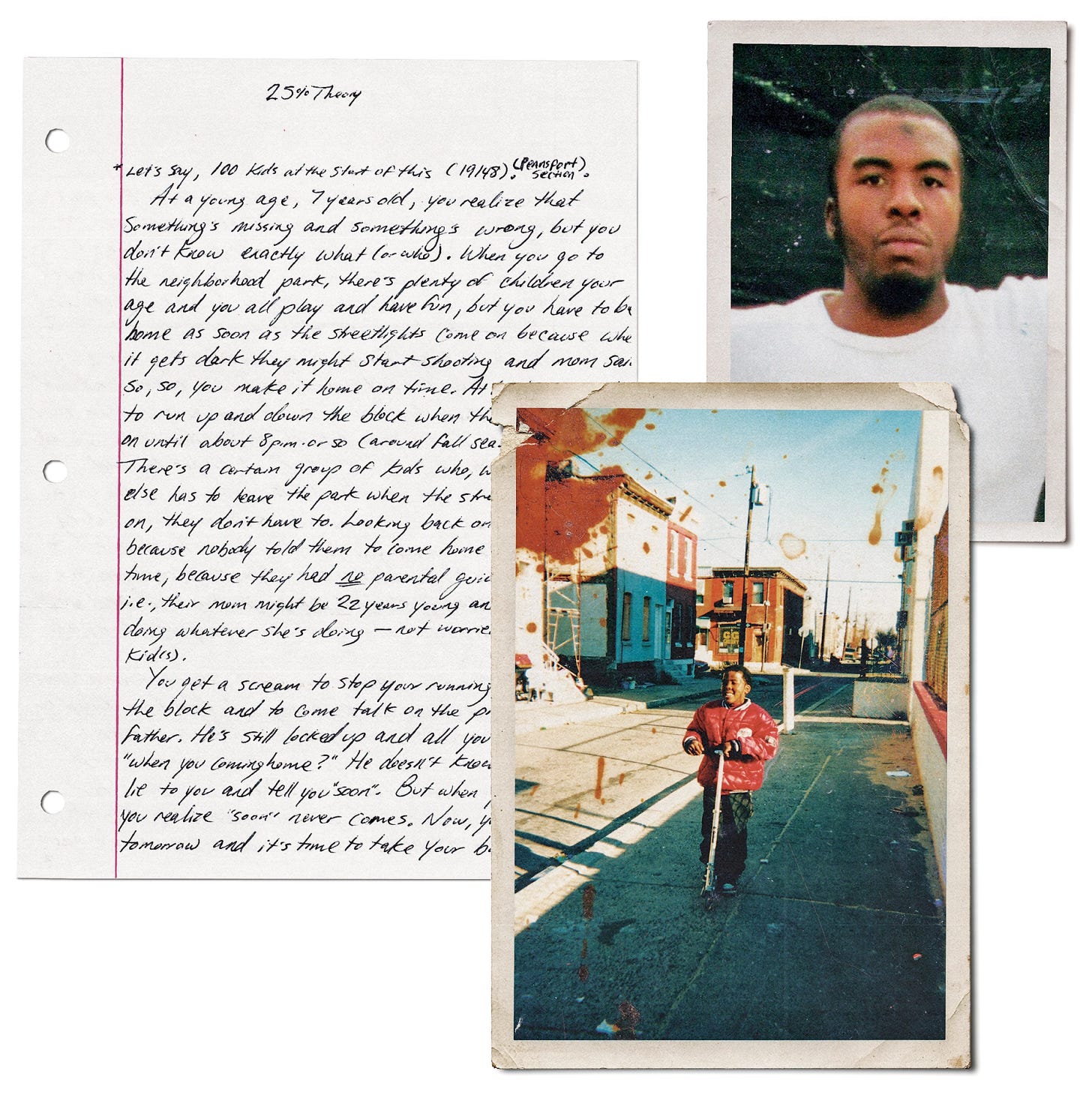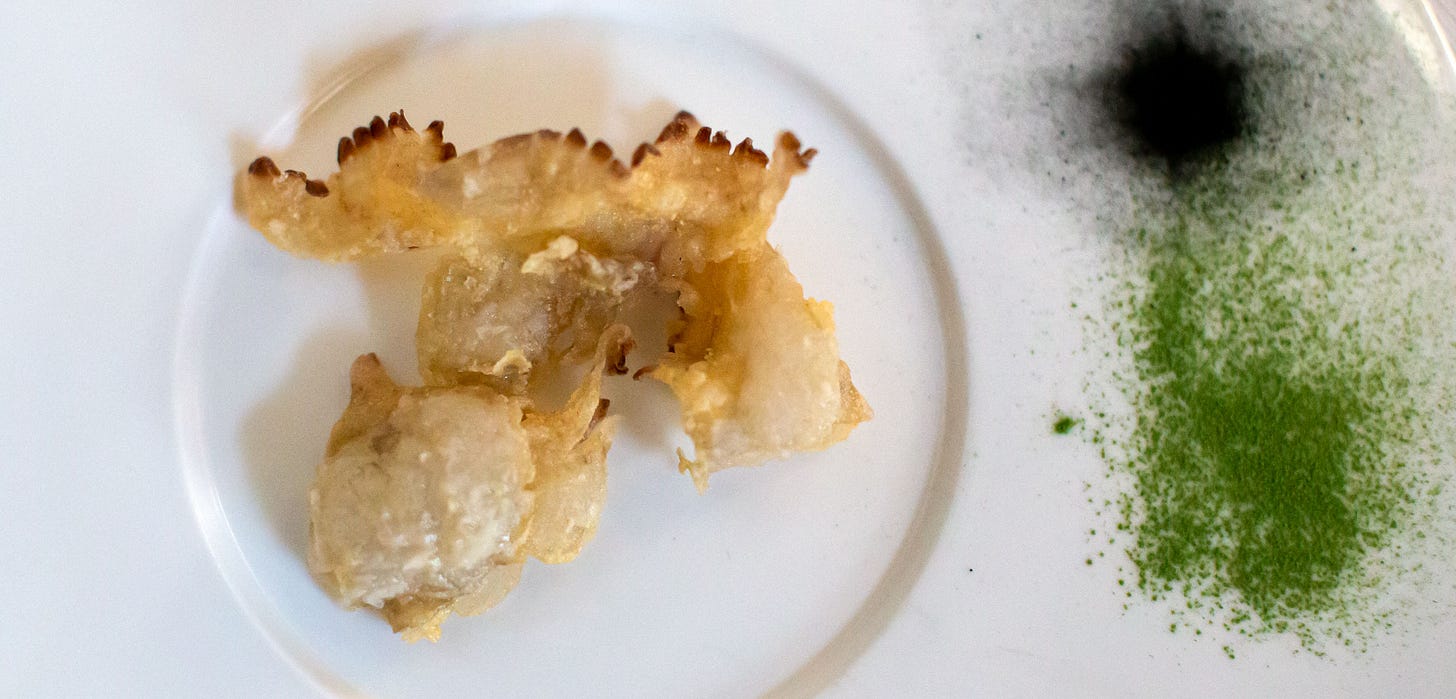No. 035: ReConfronting Systems
Updates from Rē / 2023 Farm Bill Advocacy / Justice for C.J. Rice / Jellyfish for Dinner? / Food Waste / Fishing Waste / Cancer Alley and more ...
Here at the Regenerative School, we believe that an important part of cultivating a Regenerative Mindset is confronting the shortcomings of the many ecological, economic, and social systems in which we live and participate.
In this week’s newsletter, we explore the current state of our legal system, food (waste) system and (abandoned) fishing (gear) system. We also explore inner landscapes through embodied trauma healing and asking how and if our personalities change over time.
We have multiple courses in the works on topics ranging from “ReMembering the Origins of Climate Change” and “Eco-Consciousness.” Stay tuned for more details and dates.
“After 60 Years, ‘Silent Spring’ Is Still Changing the World” is a Civil Eats round table featuring a scientist, farmer, journalist, biologist, and community organizer. "With pesticides still so rampant, what is the legacy of Silent Spring? How far have we come and how much farther do we have to go to realize the human right to healthy food, and to protect the rights of the farmers and farmworkers growing that food?" The discussion reflects on the power and ongoing impact of Rachel Carson’s groundbreaking book, and the work that remains to be done. It’s been years since we read this environmental classic, makes us want to rēread. How about you, have you read any Carson?
“We have a legal system, Jacob. We don’t have a justice system.” Honestly, if we could only recommend one piece this week, it would be “THIS IS NOT JUSTICE: A Philadelphia teenager and the empty promise of the Sixth Amendment.” The Atlantic’s Jake Tapper investigates the case of a Philadelphia teenager who was convicted of attempted murder after a 2011 shooting that left four injured. C. J. Rice, now 28, has maintained his innocence. No physical evidence tied him (or anyone) to the crime, and the single eyewitness who identified him as the perpetrator had told police three times that she did not recognize the shooter before ultimately changing her story. Rice’s pediatrician, who happens to be Tapper’s father, Theodore, contends that his involvement would have been physically impossible—Rice himself had been seriously injured in a separate shooting three weeks earlier.
The Guardian’s Graham Readfearn reports on a new study revealing the ‘staggering’ scale of lost fishing gear. Apparently enough commercial fishing line is left in the ocean each year to stretch to the moon and back… THE MOON AND BACK. “Ghost nets – as they’re known – are a particularly lethal form of plastic pollution for all the marine life we care about. Once these nets are lost from a fishing vessel, they don’t stop fishing… ever.” This is a quick and confronting five minute read on the invisible impacts or our fishing system.
Hakai Magazine’s Agostino Petroni wrote a fascinating feature on the efforts to use jellyfish for food or food ingredients in Italy. “Jellyfish today are in the same situation as tomatoes in the 16th century. Tomatoes, now a key ingredient in traditional Mediterranean cuisine, were unknown before being brought over from the Americas around the 1550s. At first, they were thought to be toxic and unhealthy. Still, possibly thanks to forward-looking cooks, or simply because of necessity, tomatoes began appearing on pizzas and in parmigiana and pasta sauce, ultimately becoming part of the Mediterranean diet.” Click here to learn about the fishermen, scientists, and chefs confronting booming populations of jellyfish in the Mediterranean.
“Are You the Same Person You Used to Be?” is a 30-minute read from The New Yorker’s Joshua Rothman. It’s a thought provoking exploration of personality and and the passage of time. Do we ever really change? Click here to find out. Warning… you may recommend this article to your friends, therapist, and relatives.
“Inside the Global Effort to Keep Perfectly Good Food Out of the Dump” by Somini Sengupta for the The New York Times. “In the United States, the single largest volume of material sent to landfills and incinerators comes from food waste. Worldwide, food waste accounts for 8 to 10 percent of global greenhouse gas emissions, at least double that of emissions from aviation. According to estimates from the Food and Agriculture Organization of the United Nations, that is enough food to feed more than a billion people.” This piece made us think of the salad we are letting wilt in our produce drawer… brb.
In "If You Care about Climate Change, Then You Care about the Farm Bill,” NRDC’s Nicole Greenfield breaks down the importance of the the reauthorization of the 2023 farm bill. From climate-friendly farming, food system resilience, food equity and food accessibility, Greenfield writes on the opportunity to shift the U.S. agricultural system from a climate problem to a climate solution. Want to get involved in 2023 farm bill advocacy click here for information and resources.
FINALLY! The EPA finally called out environmental racism in Louisiana’s Cancer Alley. In a “remarkable” letter, the EPA accuses Louisiana regulators of neglecting Black residents’ concerns about toxic air pollution. Click here to read Lisa Song’ and Lylla Younes’ reporting for Grist. “There’s nothing new to any of this except that we have leadership at the EPA [that] wants to do something about it.”
In “Buffalo, for the Land and the People,” Atmos’s Mélissa Godin talked to with Sicangu Lakota people, who are bringing back buffalo to heal environmental and cultural wounds. “Both the buffalo and Indigenous people were decimated at the same time. It is a story within our own.” Oof.
Following our last rēread recommendation (Resmaa Menakem’s My Grandmother's Hands: Racialized Trauma and the Mending of Our Bodies and Hearts), we offer up another seminal work on healing that has shaped Rē’s retreat offerings and inner landscape work: Bessel van der Kolk’s 2014 classic The Body Keeps the Score. Dr. van der Kolk transforms our understanding of traumatic stress, revealing how it literally rearranges the brain’s wiring—specifically areas dedicated to pleasure, engagement, control, and trust. He shows how these areas can be reactivated through innovative treatments including neurofeedback, mindfulness techniques, play, yoga, and other therapies.
On that note, would anyone be interested in participating in a monthly Rēgenerative Virtual Book Club? Fill out this quick poll or write to admin@regenerativeschool.org and let us know!
That’s all for this week! See you November 5th for more on our upcoming courses and developing retreat offerings!
Have a good weekend!
Adar










